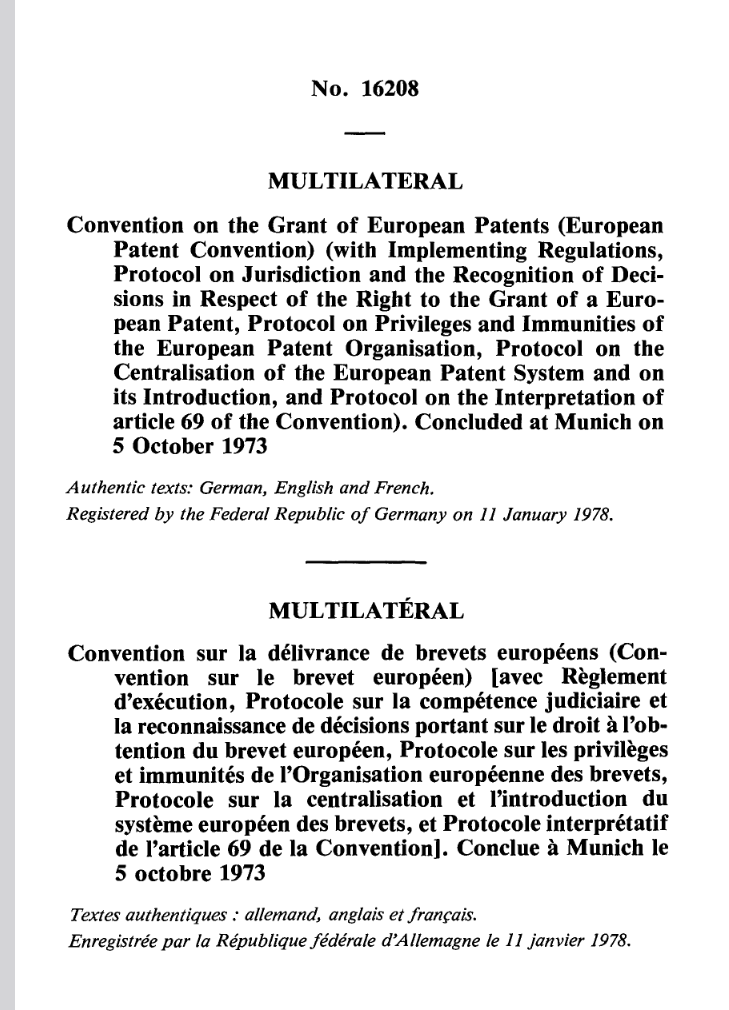European Patent Office (EPO) Reformation Project
Almost 52 years ago the European Patent Convention (EPC) was finalised and something began in Europe in the name of unity or 'harmonisation' (they'd have us believe for the sake of science).
We want to go back in time.
The main reason is to mention Art 52, and the reason why it should be in this 'introductory' post as well as later articles/posts, for what's eternally crucial is its relevance to computing. In a nutshell, Art 52 is being crushed by hostile corporations from other countries, especially American plutocrats. They don't care about laws; they try to change laws or break laws; they even take over courts. It's grotesque. The EU is tolerating and the EC is enabling this.
It is essential to establish what's in the text and reinforce the fact that software for computers has been excluded from the beginning.
To put things in perspective, we also wish to mention Munich and the date, 5 Oct 1973 ("Concluded at Munich on 5 October 1973"). This is nothing new. The original workers are mostly dead by now. The people who worked on the text itself are almost entirely dead. They cannot talk about what's happening right now w.r.t. their original vision.
The project didn't go well [1, 2]. A few decades ago it became abundantly clear that European software patents - i.e. patents which are both illegal and undesirable - were advanced because of bribes, lobbying, and interests peripheral to if not hostile towards Europe and towards science. It was about monopoly.
Under a French reign at the EPO (almost 25 years in a 30-year time window), under Benoît Battistelli and António Campinos, corruption became an everyday norm at the EPO. Even some of the most prolific patent filers are now openly complaining and objecting to the abandonment of patent quality and validity (that should be assessed based on the EPC but are instead assessed by two levels of kangaroo courts which are controlled by "industry").
Here in Techrights we'll try to go back in time and assess the genesis (EPC). It wasn't a bad idea to begin with; what it turned out to be is some kind of Kremlin in the midst of Bavaria and the EU. It's a stain on the EU's reputation. Thus, it threatens the EU's integrity, credibility, and ultimately stability. █

